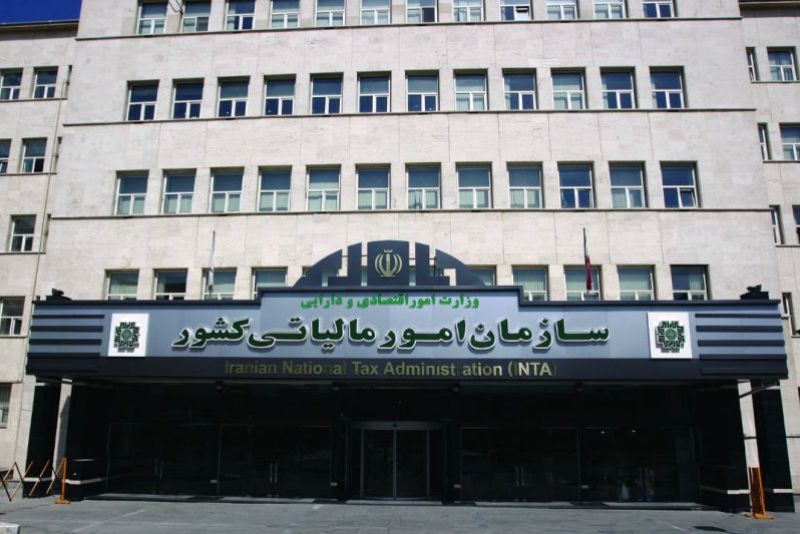The government earned 3,100 trillion rials ($8.61 billion) from tax in the first eight months of the current fiscal year (March 21-Nov. 21).
From the total tax income, direct taxes stood at 1,940 trillion rials ($5.38 billion) and tax on goods and services reached 1,160 trillion rials ($3.22 billion), IRNA reported.
From the total direct taxes, tax on legal entities amounted to 1,270 trillion rials ($3.52 billion), income tax 554 trillion rials ($1.53 billion) and capital tax 114 trillion rials ($316 million).
The report noted that the fiscal 2021-22 registered 3,250 trillion rials ($9 billion) in income tax, which figure stood at 2,070 trillion rials (5.75 billion) the year before.
This means during the eight months of the current year, the government earned 95% of income tax collected during the fiscal 2021-22 and 154% of that received in the preceding year.
It is worth noting that the Iranian rial has lost more than 40% of its value against the dollar since the start of last Iranian year. Since the beginning of the fiscal 2020-21 to date, the value of the dollar against the rial has increased by 125%. The above-mentioned figures have been converted based on the current exchange rate of about 360,000 rials per dollar.
Inflation should also be taken into account when studying the changes in tax income. The average inflation rate has been around 40% since the fiscal 2020-21.
The Ministry of Economic Affairs and Finance had announced earlier this year new measures taken by the government, including connecting nine million point-of-sale (POS) terminals to the national taxation system and activating another nine million POS terminals.
As a result, the number of taxpayers increased by three million by August 22. The number of tax declarations submitted to the Iranian National Tax Administration increased from 3 million to 4.5 million [marking an over 50% rise] by July 22.
The Comprehensive Taxpayers System, which is the main platform for the implementation of the law for shopping terminals, requires all sales and purchases to be registered in the form of electronic invoices.
The government aims to increase the share of taxes and reduce the share of oil revenues in the public budget as the income from the sale of natural resources, including oil, gas and mines, is earmarked for development projects and not general budget expenditures.
The Budget Law, for instance, has stipulated that social media influencers with more than 500,000 followers who generate income from commercial activities will be subject to income tax.
Economy Minister Ehsan Khandouzi earlier communicated the directive on taxing influencers to the Iranian National Tax Administration.
“For INTA, it is not important whether the owner of the bank account is a dairy seller or a celebrity or an athlete. Artists will be exempt from tax if they earn less than 2,000 million rials [$5,500 per year]. All other celebrities who earn more must be taxed,” said Davoud Manzour, the head of INTA.
As per the new approach employed by INTA, whistleblowing on tax evaders and other tax violations will be incentivized. Related guidelines were communicated to tax offices on Feb. 27.
The public has been asked to log on to Intamedia.ir, report tax schemes and evasions, and get a special reward.
Tax Evasion
Globally, approximately 36-90% of government funding come from taxes. In Iran, however, the contribution is 40%.
Iran’s super-rich account for 4-5% at best, according to Mohammad Salam,i a research associate at the International Institute for Global Strategic Analysis.
Tax evasion is estimated at 1 quadrillion rials ($2.7 billion), of which 50% is direct tax evasion and the rest is due to refusal to pay.
According to Rajab Rahmani, a member of the Majlis Budget Commission, tax evasion equals the budgets of 15 of Iran’s 31 provinces.
Omid Ali Parsa, the former head of INTA, disclosed that half of the country’s billionaires pay no taxes — based on a review of bank transactions of some 300,000 people with annual incomes exceeding 10 billion rials [$27,700] — while the other half pay less than what is required.
It has been more than a century since the first tax law was enacted in Iran, but only in the last decade has the Islamic Republic begun to utilize taxes more seriously.
Evasion is aided by the fact that government agencies do not provide sufficient information to the tax agency.
Over the years, despite the Islamic Republic’s pledges of economic equity, the super-rich have been able to change some laws to their advantage due to their access to centers of power.
Major centers of power, institutions and organizations are exempt from some taxes.


